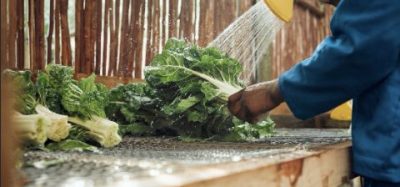Reduced on-farm biodiversity may have negative food safety impact
Posted: 1 April 2019 | New Food Magazine | No comments yet
Dung beetles and soil bacteria on farms could help suppress E. coli and other harmful pathogens, according to research.


Dung beetles and soil bacteria on farms could help suppress E. coli and other harmful pathogens, according to research.
The study published in the Journal of Applied Ecology found improved food safety may be enhanced by on‐farm biodiversity and the current view that farm simplification helps may undervalue natural resistance to human-pathogen survival.
Growers are often encouraged to remove hedgerows, ponds and other natural habitats to prevent wildlife from moving onto their farm fields and potentially spreading foodborne pathogens.
Results suggested dung beetles and soil bacteria may improve the natural suppression of human pathogens on farms, meaning insecticide use could be reduced and greater plant and insect diversity promoted. Dung beetles bury faeces below ground and make it difficult for pathogens to survive.
Researchers tested a suite of hypothesised relationships between land management (farming practices and landscape context), faeces-feeding community dynamics (dung beetle community mass and soil bacterial biodiversity), and ecosystem services relevant to food safety (faeces removal and suppression of potential foodborne pathogens).
Matthew Jones, who led the research as part of his Ph.D. project at Washington State University, said farmers are more concerned than ever with food safety.
“Wildlife and livestock are often seen as something that endangers food safety, but our research shows that reducing on-farm biodiversity might be totally counterproductive. Nature has a ‘clean-up crew’ of dung beetles and bacteria that quickly remove faeces and the pathogens within them, it appears.”
The team surveyed beetle and soil microbial communities in 70 commercial broccoli fields spanning the U.S. west coast from northern Washington State to southern California. Pig faeces were used to attract dung beetles to see how quickly they would clean up.
Organic farms attracted a range of dung beetle species that removed the faeces quicker than on conventional farms. The study suggested organic farms might foster beneficial biodiversity with the potential to counterbalance any heightened food safety risks. Such farming also indirectly led to more diverse soil bacterial communities.
Several species of dung beetles and diverse communities of soil bacteria were capable of suppressing human‐pathogenic E. coli.
“In summary, we recommend greater consideration of food safety as an ecosystem service associated with [faeces-feeding] arthropods and soil bacteria – two key components of on‐farm biodiversity that might be harmed as farms are simplified, or augmented when farms are managed to be more diverse. Indeed, farm‐safety schemes that ignore biodiversity’s benefits might inadvertently worsen, rather than mitigate, food safety risks,” said researchers.








